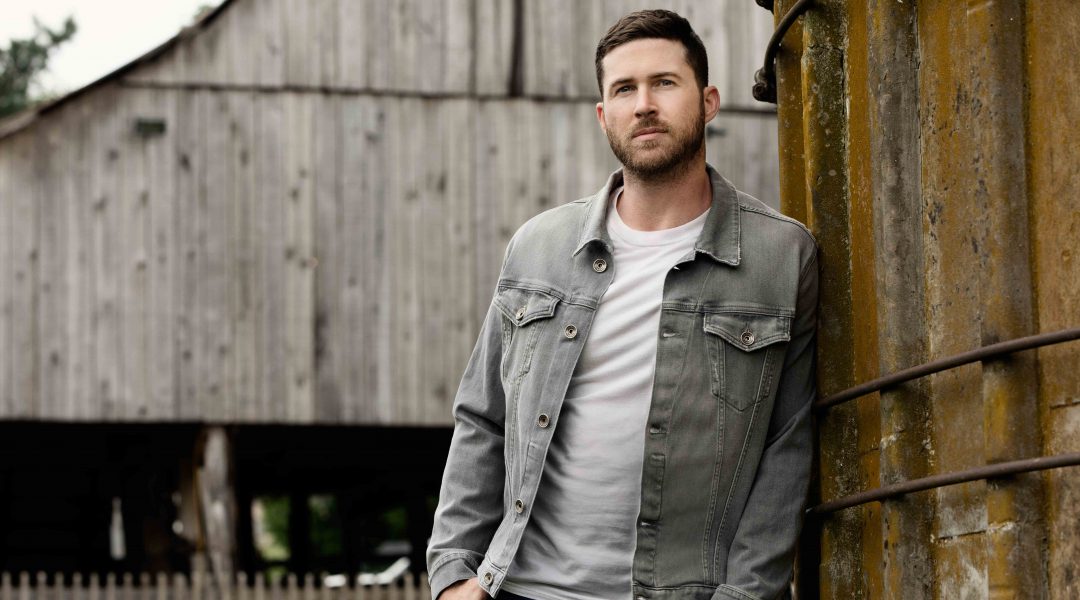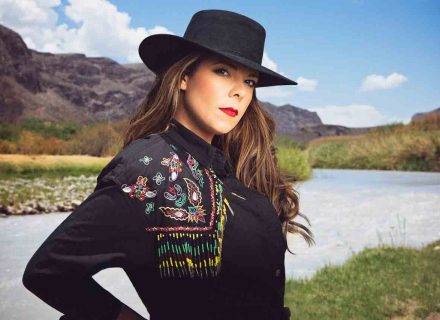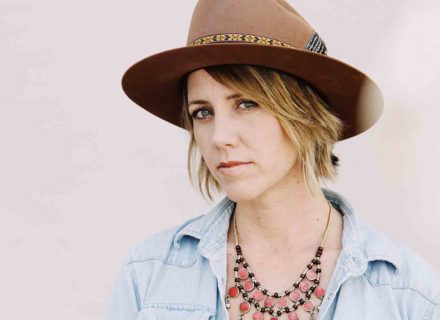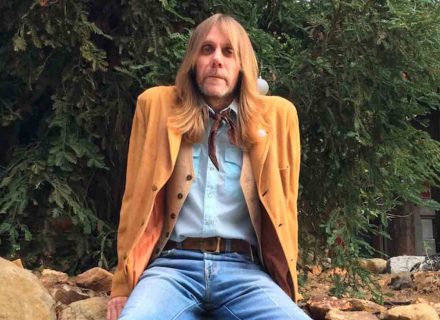The Alabama-bred rising star shares insights about his latest EP, In a Truck Right Now.
Rising country star Riley Green channels his Southern roots into songs about life, love, and small-town living.
Raised in Jacksonville, Alabama, Green grew up helping out his grandfather at the Golden Saw Music Hall. Surrounded by classic country music, he picked up the guitar and started performing around the Southeast.
Fresh off the release of his latest endeavor, In a Truck Right Now, Green talked with C&I about songwriting, performing, and the Nashville music scene.
Cowboys & Indians: You recently released your new EP, In a Truck Right Now, and the single “There Was This Girl.” What do you hope your fans will take away from your new music?
Riley Green: To the fans I’ve already had, being that I’ve toured several years in the Southeast, I’ve had a pretty decent little following down there and it’s just kind of been one of those things where I recorded all the music on my own, and I was scraping money to record. So naturally [when] you have a producer like Dann Huff and a record label like Big Machine behind it, the production quality is night and day better. That’s the kind of thing I’m most proud of, as far as the fans I already had. And to new fans, people who are just kind of coming across my music, [I hope they] hear the influences in it, just listen to that more traditional country. That classic country sound from when I grew up comes out in the music.
C&I: When you were first starting out, you were playing other people’s songs. Was it hard for you to open yourself up to your audience when you started putting your own writing out there?
Green: Other than playing covers in shows, I’d always played original songs, as far as when I record it and stuff like that. I think I had, like, four EPs put out before I got signed, so I had 20 to 25 songs out that I had written. But I came to Nashville a couple years ago ... and I mean it just made such a difference to have these really great songwriters sitting in a room with you, helping you come up with stuff. It’s just got me and my songwriting a lot better, I think, but that’s the thing I’m most proud of about me is that I do write my own songs. It’s a whole lot easier to relate to people that can relate to my music because I came up with it. A lot of the stuff I actually lived and went through. I’m definitely a songwriter first.
C&I: Are there any fun stories or memorable moments you’d care to share from the writing and recording process?
Green: Oh, yeah. It’s one of those things where, recording-wise, I didn’t know who Dann Huff was and I had never spent any time in Nashville. I didn’t know who these people were and he’s this famous producer. I remember meeting Reba McEntire at the ACM Awards in Las Vegas and she asked me who was producing my record. I told her Dann Huff and she just smacked me in the face with her scarf. And I was like, “What the hell? What are you doing?” She was like, “You know, back when I was getting started, I had to go through all these producers to find one that was any good and you start off with Dann Huff with your first record.” That kind of told me how good he was, you know?
I was a big fan of Rhett Akins, and being in the room to write with him was a cool thing for me, anyway. And we got to be buddies. I think we talked about hunting for the first hour we sat there, and then we wrote a song; the next time, I think we went and fished in his pond. He’s just a down-to-earth guy and that’s the thing about it: The kind of guys that I write well [with] are the kind of guys that I would get along with anyway.
C&I: Where do you get inspiration for your writing?
Green: I’m real close to my family. ... I’m from Alabama and kind of proud of my little area that I’m from down there, the small town I grew up in. A lot of that comes out in my writing. It’s one of those things where prior to coming to Nashville and co-writing, it was just something that happened — or every day, just riding down the road, maybe I’d think of something. I didn’t really write with much of a purpose in the sense of I was never writing, thinking I’d have this on the radio [or] thinking that I’d sign a record deal. I just wrote songs that I thought people who would come to my shows would like. Now, you sit down and it’s a lot more organized. They set up scheduled times to sit down and write. Nowadays I spend more time on the road, so I’m constantly writing new ideas down and little things. That way when I go sit down with two writers in Nashville, I’ve got something to say — “Hey, what y’all think about this?” It all comes from different places. It can come from any little thing you see riding down the road or an idea you’ve had for several years.
C&I: Speaking of family, your grandfather ran the Golden Saw Music Hall, which prompted you to perform. What’s it like having that musical lineage?
Green: One cool thing about it was when I signed with Big Machine, they came down [and] sent a camera crew to my hometown. I didn’t really know why until I saw it and I was like, “Oh, what the hey.” That was just kind of how I grew up, but I guess I sort of took it for granted. We were in a big city and my granddad just knew all the people. He’d just call up his buddy to play the banjo or whatever and he’d come by and I’d sit there with a bunch of old men and learned how to play guitar watching their hands. There’s not a lot of people who came up like that and I’m sure that’s a reason one of the first songs I ever learned was “Mama Tried” by Merle Haggard, because I was just hanging around with those older guys and that’s what they like. My granddaddy was always one to kind of push me toward it. He liked music enough that it made me like it.
C&I: Are there any specific songs on the EP that you feel really connected to?
Green: “In a Truck Right Now” is an anthem kind of song to where I grew up. I can remember my dad letting me drive his old square-body pickup truck and me standing in the seat because I wasn’t old enough to reach the pedals with my feet. He would work the gas and I would steer, you know? I wrote something like that because that’s how I grew up, but there’s a lot of people that grew up like that, especially in the rural communities, especially in the Southeast.
“Outlaws Like Us” is another one with a kind of small-town fun kind of feel. “Numbers on the Cars” is a song that I’d already released on an EP before I signed, but we looked at recutting. It’s a song I wrote about my Granddaddy Linden having Alzheimer’s and being a big NASCAR fan and me just knowing that he would always remember who drove all the cars, what numbers they were, and who the drivers were. He’d recite those to me when I was a kid, so there’s a lot of personal songs on this project for sure.
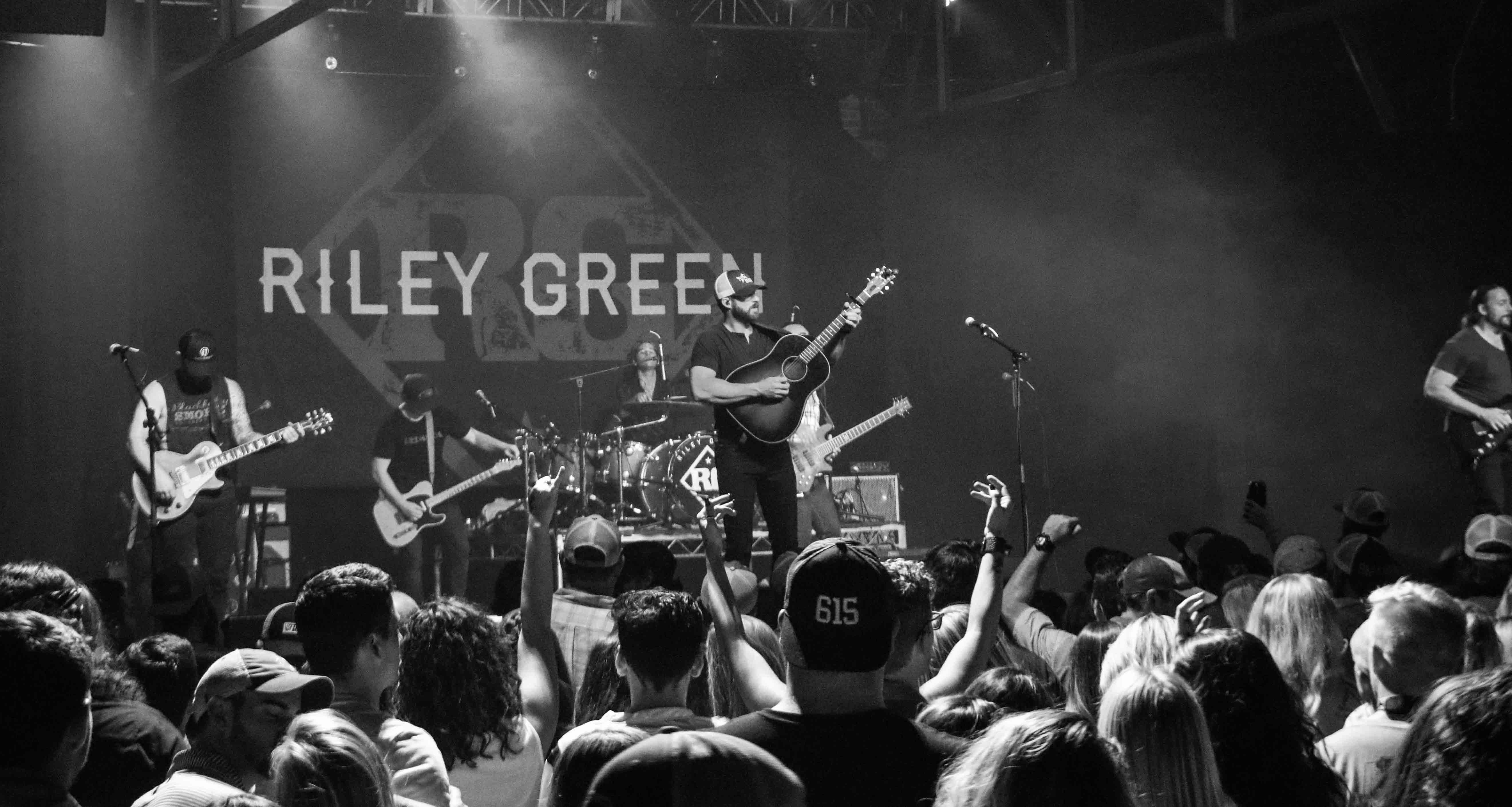
C&I: What do you think helps a song or a story resonate with people?
Green: Just relatability. I’m not the best singer in the world and I’m certainly not the best songwriter in the world. Even before signing a record deal, I wrote songs about stuff I knew and how I grew up and I mean it just so happened a lot of people grew up like that. I had a song called “Georgia Time” that has 4-something million streams on Spotify. It has never been on the radio. It was just a song people connected to for whatever reason. It’s funny — it’s such a regional song about where I grew up in northeast Alabama, but people sing it in Chicago. They find a way to make it their own. I wish I could tell you what it was because I would write every song like that. But it’s just something in there that people can seem to relate to. It’s cool to be able to write something and connect with somebody like that.
C&I: When you approach songwriting, what’s your style?
Green: I don’t know that I’ve ever done it the same twice. There’s definitely no right or wrong way. You get with all these songwriters up here and you realize that everybody’s got their own method. I think the majority of the time it’s probably an idea. It’s a hook or a title or even just something simple like something that I think a song should be about, you know? So I mean I’m probably more of a word guy. Some of these songwriters I get with are really great at coming up with melodies that I would never think of, and that’s a big help when you’re sitting down in a room. Somebody kind of gives you a little spin on it that you wouldn’t necessarily come up with yourself. I think I would probably lean more toward the lyrics.
C&I: How do you think you’ve evolved as an artist since playing in bars and on weekends in Jacksonville?
Green: It definitely was a confidence-building thing for me. I never thought I was a real strong singer. I mean, I was carrying a tune well enough to not get booed, but that was about it. Maybe I was playing the same bars every week and those people that I saw were the same people every week. But they’d come back and start singing my songs that I wrote and they would request them. So that was a little bit of a confidence builder in my songwriting. And then I had people calling me, saying, “Hey, man. I heard you’re here. Want you to come play at this bar?” That kind of builds my confidence in my performing. Definitely cutting my teeth in a small town like that helped me gain a little bit of confidence and maybe look at it as something that I could make a living doing.
C&I: You were named a Rolling Stone Country Artist You Need to Know. What was that like?
Green: I don’t comprehend it. It’s awesome. I mean, I see Rolling Stone and it’s just above my head. I mean it’s like looking at a chart and seeing my song was No. 26 or something like that. Like, I don’t comprehend that. I see all the names on the list and it’s just still kind of hard to believe, you know?
C&I: What can we expect in terms of touring?
Green: I’m in the middle of a fall tour — it’s called the Outlaws Like Us Tour. It’s 40 cities and we’ve had several sold-out shows. It’s been great so far. We’re in the middle of that. We’re hitting a lot of places outside of the Southeast, which is great, and it’s kind of new for me. We’re looking at a major tour first of next year and then possibly doing some support dates with some bigger-named artists, too. We’re right in the middle of negotiating some of that stuff.
C&I: What’s something people might not know about you?
Green: I guess that I’m a little bit of a homebody. It’s funny — all my friends and people from back home, they’ll see me in a Walmart or something and say, “Man, you must love all this traveling you’re getting to do,” and I dream about being home sitting on the porch. I just built a house in northeast Alabama and that’s my style. I get to do my traveling, but I always would be at the house, hanging out with the family. That’s kind of more my speed, the slower, lazier lifestyle.
C&I: So would you say home’s your favorite place to go when you’re back in Jacksonville?
Green: Oh, yeah. Like I said, I built a house on some land that I bought from my grandmother where my Granddaddy Buford used to have a peach orchard when I was a kid. It’s right next to a water tank. I grew up right there hunting in that little spot. I built the house. … I’m in Nashville 90 percent of the time now, but I’ll always want that place right there. I feel like I’m going on vacation when I go home.
For more information on Riley Green and his upcoming tour dates, visit his website.






